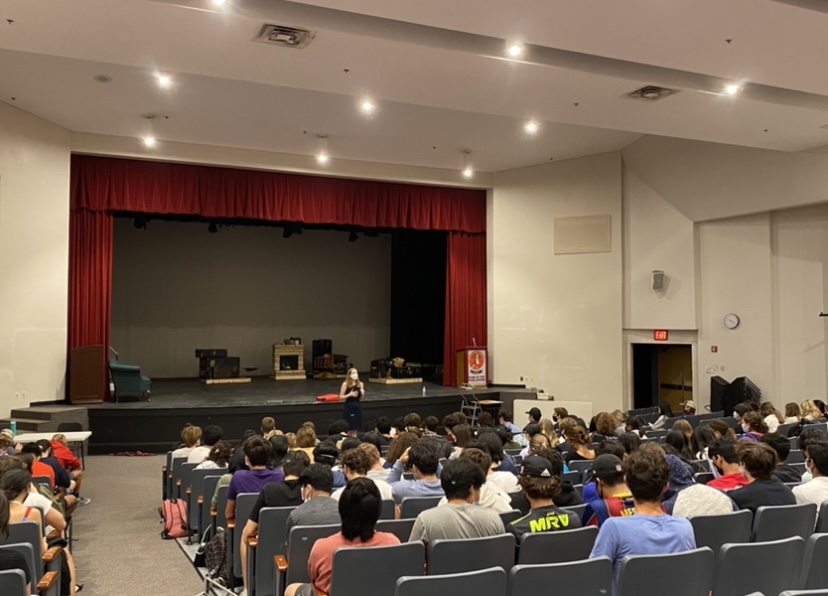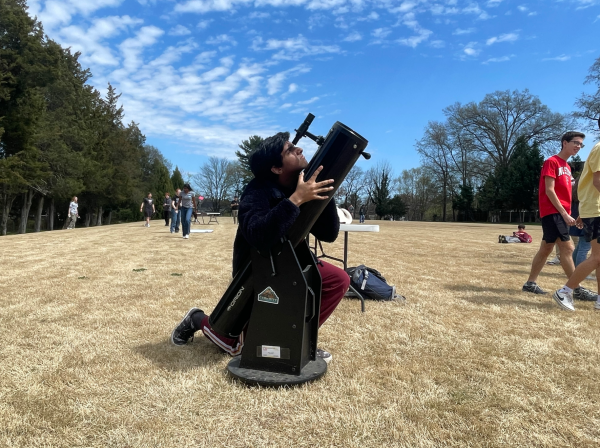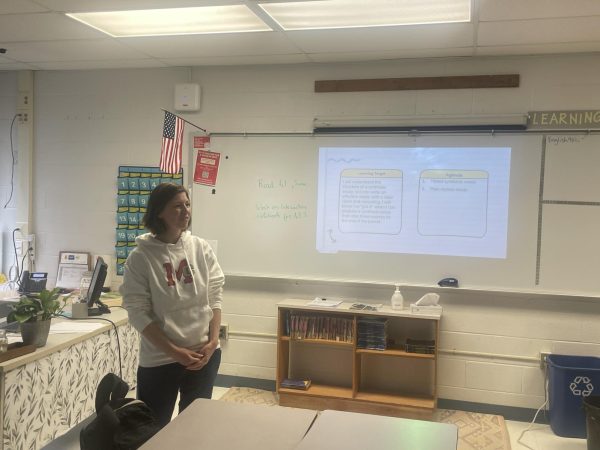Test-optional policy reduces student stress
Students are no longer concerned over their SAT scores
After spending half of their sophomore and entire junior year online, the McLean class of 2022 has returned to school busy with their college applications. However, due to COVID-19, many students did not have access to testing centers or have adequate time for test prep. As a result, many colleges and universities have made their upcoming freshman applications test-optional, and students are preparing to apply with the new guidelines.
“Colleges promise that when they say that test scores are optional, they really mean it,” college and career specialist Laura Venos said. “McLean students, just like all other students, should see the test-optional policy as a gift; it should lower stress.”
Venos recommends students submit test scores only if they fall in or above the average range when looking at the data reported by their individual colleges. While students who received a high score do have the advantage of including it on their application, a low score won’t hurt a student’s prospects of being admitted.
“If a student decides to apply without test scores, the college admissions team will review all of the other parts of the application to determine if that student will be a good fit,” Venos said.
Many seniors like the new policy, particularly because it decreases requirements needed to apply to college.
“I feel that the test optional policy for the SAT has made the application process a lot less stressful,” senior Chris Billings said. “You don’t have to worry about getting a bad score as much anymore so there is a lot less pressure.”
Venos’ advice to create a strong application without including test scores is to spend time writing strong essays, work with teachers to secure recommendation letters and focus on academic and personal pursuits. Without students’ test scores, colleges are more likely to focus on applicants’ GPAs, extracurricular activities and most importantly, their transcripts.
“The transcript is the most important piece of the college application,” Venos said. “Students should be choosing appropriately challenging courses, and they should work closely with their school counselor while making these decisions.”
With more emphasis on the essays, a big challenge for seniors is coming up with ideas and deciding what to write for their essay prompts.
“Essays are a helpful way to reveal parts of yourself that might not be expressed elsewhere in the application,” Venos said.
McLean held SAT day on Wednesday, October 13th, where seniors had the chance to take the test. The school also held PSAT day for sophomores and juniors. As sophomores experienced what the four-hour long test was like for the first time, many just saw it as something to get over with.
“I’m not that concerned about my PSAT score, because I hope by the time I graduate the SAT won’t matter that much,” sophomore Caitlyn Lee said.
The University of Virginia and Virginia Tech, the most applied-to schools among Mclean students, are both test optional for the 2021-2022 admissions cycle. While the majority of colleges are test-optional, there are still a small handful of schools that require test scores, such as some Ivy Leagues.
“[The SAT is] something that we should still be studying for, but it’s less of a burden this year than previous year because of the test-optional policy,” Lee said.
As the deadline for college applications approaches, seniors will spend the next few weeks perfecting their applications. The deadline for many colleges is between November and January for students planning on applying early action and regular decision.
“This is a stressful time but very temporary,” Venos said. “Focus on applying to colleges where you could thrive. That isn’t always going to be the most competitive college you could get into.”
Your donation supports the McLean High School's independent, award-winning news publication.













